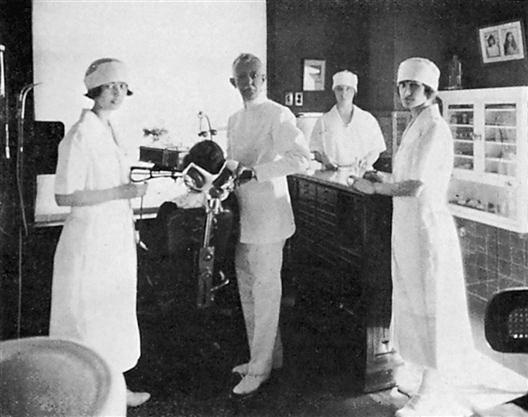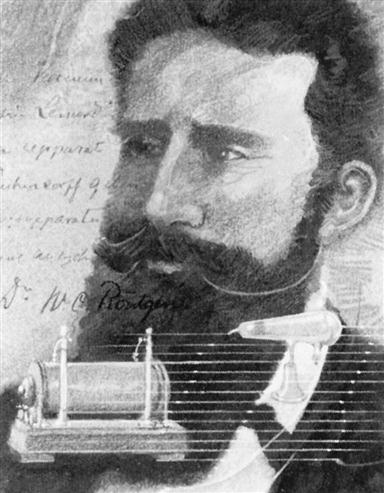Introduction to Dental Assisting
Learning Objectives
1 Pronounce, define, and spell the Key Terms.
2 Describe the highlights in the history of dental assisting and dentistry.
3 Name the individual who discovered x-rays.
4 Name the first dentist to employ a dental assistant.
5 Name the first African American to receive the DMD degree from Harvard University.
6 Name the first African American woman to receive a dental degree in the United States.
7 Name each member of the dental team and explain the role of each.
8 List and describe the specialties of dentistry.
Key Terms
C. Edmund Kells
Certified Dental Technician (CDT)
Dental Assistant
Dental Healthcare Team
Dental Laboratory Technician
Dental Public Health
Dental Specialties
Dentist
Doctor of Dental Surgery (DDS)
Doctor of Medical Dentistry (DMD)
Endodontics
Expanded-Functions Dental Assistant (EFDA)
Ida Gray-Rollins
Oral and Maxillofacial Radiology
Oral and Maxillofacial Surgery
Oral Pathology
Orthodontics
Pediatric Dentistry
Periodontics
Prosthodontics
Registered Dental Hygienist (RDH)
Robert Tanner Freeman
Wilhelm Conrad Roentgen
Dental assistants are important members of the dental healthcare team. A career as a dental assistant is exciting, challenging, and very rewarding. Dental assisting is a career that offers many opportunities for young people and individuals who may be older and wish to return to school to begin a new career.
This chapter takes you through the highlights in the history of dentistry, including how the Lady in Attendance evolved into the highly skilled dental health professional recognized today as the dental assistant. You will learn the roles and responsibilities of each member of the dental health team and how the members interact to provide patients with quality dental care. You will also learn about the specialty areas of dentistry.
The History of Dentistry
Dentistry has a long and fascinating history. From the earliest times, humans have suffered from dental pain and have sought a variety of means to cure it. As they developed tools, humans also cleaned and cared for their teeth. Early toothbrushes ranged from wooden sticks with frayed ends to ivory-handled brushes with animal-hair bristles for cleaning the teeth. Today, many people think of “cosmetic dentistry” as a relatively new field, but skulls of ninth century Mayans have numerous inlays of decorative jade and turquoise on the front teeth. Skulls of the Incas discovered in Ecuador have gold pounded into prepared holes in the teeth, similar to modern gold inlay restorations. As B.W. Weinberger noted in Dentistry: An Illustrated History* a profession that is ignorant of its past experiences has lost a valuable asset because “it has missed its best guide to the future.” Table 1-1 lists major highlights in the history of dentistry.
TABLE 1-1
Highlights in the History of Dentistry
| Date | Group/Individual | Event |
| 3000-2151 BC | Egyptians | Hesi-Re is earliest dentist known by name. |
| 900-300 BC | Mayans | Teeth receive attention for religious reasons or self-adornment. |
| 460-322 BC | Greeks | Hippocrates and Aristotle write about tooth decay. |
| 166-201 AD | Romans | Restore decayed teeth with gold crowns |
| 570-950 | Muslims | Use Siwak as a primitive toothbrush |
| 1510-1590 | Ambroise Paré | Writes extensively about dentistry, including extractions |
| 1678-1761 | Pierre Fauchard | Becomes “Father of Modern Dentistry” |
| 1728-1793 | John Hunter | Performs first scientific study of teeth |
| 1844 | Horace Wells | Uses nitrous oxide for relief of dental pain |
| 1859 | American Dental Association is founded. | |
| 1885 | C. Edmund Kells | Employs first dental assistant |
| 1895 | G.V. Black | Becomes “Grand Old Man of Dentistry” and perfects amalgam |
| 1895 | W.C. Roentgen | Discovers x-rays |
| 1908 | Frederick McKay | Discovers that fluoride is connected with prevention of dental caries |
| 1913 | Alfred C. Fones | Establishes first dental hygiene school in Bridgeport, Connecticut |
| 1924 | American Dental Assistants Association is founded. | |
| 1947 | Dental Assisting National Board is founded. | |
| 1970 | Congress | Creates Occupational Safety and Health Administration |
| 1978 | Journal of the American Dental Association | Publishes a report on infection control for dental offices |
| 1982 | First hepatitis B vaccine becomes commercially available | |
| 2000 | Oral Health in America: A Report of the Surgeon General is released. | |
| 2003 | Centers for Disease Control and Prevention | Releases Guidelines for Infection Control in Dental Health-Care Settings—2003 |
Wilhelm Conrad Roentgen (rent-ken) (1845-1923) was a Bavarian physicist who discovered x-rays, or radiographs, in 1895 (Figure 1-1). His discovery revolutionized diagnostic capabilities and forever changed the practice of medicine and dentistry.
C. Edmund Kells (1856-1928), a New Orleans dentist, is usually credited with employing the first dental assistant (Figure 1-2). In 1885 the first “lady assistant” was really a “lady in attendance” who made it respectable for a woman patient to visit a dental office unaccompanied. The assistant helped with office duties, and by 1900, Dr. Kells was working with both a chairside dental assistant and a secretarial assistant. Soon other dentists saw the value of dental assistants and began to train dental assistants in their own offices.

African Americans in Dental History
African Americans were not accepted for training at any dental schools until 1867, when Harvard University initiated its first dental class and accepted Robert Tanner Freeman as its first black student. Since then, African Americans have been appointed deans and faculty members at a number of American dental schools. Ida Gray-Rollins (1867-1953) was the first African American woman in the United States to earn a dental degree. She practiced dentistry in Chicago until she retired in 1928 (Table 1-2).
TABLE 1-2
Highlights of African Americans in Dentistry
< ?comst?>
| Date | Group/Individual | Event |
| 1765 | Peter Hawkins | Native-born, an itinerant preacher in Richmond, Virginia, did extractions for parishioners. |
| 1851 | John S. Rock | Awarded a silver medal for making artificial teeth. Examples of his work were exhibited by the Benjamin Franklin Institute. |
| 1869 | Robert Tanner Freeman | First African American dentist to receive the DMD degree from Harvard University. |
| 1963 | Andrew Z. Kellar | Published “The epidemiology of lip, oral and pharyngeal cancers” in the American Journal of Public Health. |
| 1967 | Van E. Collins | First African American dentist in regular military service to be promoted to the rank of colonel. |
| 1973 | Konneta Putman | Installed as the president of the American Dental Hygienists Association. |
| 1975 | Jeanne C. Sinkford | First African American female dean of a U.S. dental school. |
| 1989 | Raymond J. Fonseca | Appointed dental dean at the University of Pennsylvania. |
| 1994 | Juliann Bluitt | The first woman dentist elected president of the American College of Dentists. |
| 1994 | Caswell A. Evans | The first African American dentist elected president of the American Public Health Association. |
| Eugenia Mobley | The first African American woman dentist to earn a degree in public health and the second female dean of a U.S. dental school. | |
| Clifton O. Dummett | Distinguished professor emeritus of the University of Southern California School of Dentistry and author and historian for the National Dental Association. |
< ?comen?>< ?comst1?>

< ?comst1?>
< ?comen1?>
From Bird D, Robinson D: Modern dental assisting, ed 10, St Louis, 2012, Elsevier.
Members of the Dental Healthcare Team
The purpose of the dental healthcare team is to provide quality oral care for patients in the practice. Each member of the team plays a very important role, but always remember that the most important person in the dental office is the patient. The roles and responsibilities of each team member are listed in Box 1-1. The dental healthcare team consists of the following:
Stay updated, free dental videos. Join our Telegram channel

VIDEdental - Online dental courses



